Published this week Out of this world, the fist-thick, ambitious debut novel by Karl Ove Knausgård (51), for the first time in Dutch translation. A book about themes such as fear and shame, feelings that torment the Norwegian writer himself. The worldwide success of his autobiographical series of novels My struggle did little to change his lack of self-esteem. 'My face has become a mask.'
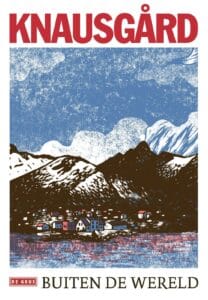
1. Who do you see when you look in the mirror?
'To be honest, I prefer not to look at myself. I don't look at photos, don't look at myself in the magazines or on TV. I don't like what I see when I look in the mirror, what it means. In recent years, my face has become a mask. I see a book cover instead of myself. It is as if I have turned into a photograph. That's an interesting but strange sensation. When the first volume of the series came out and became a sensation, I was called the sexiest man in Norway. I was also found controversial, confrontational. As a result, the mask became almost demonic. But there is a life-size difference between the photo and who I am inside.
Self-confidence
When I have to perform, I can change my clothes ten times and am very conscious of how I look. This is because I lack self-confidence; I need to feel that I look good, otherwise I feel too insecure and cannot perform. That's why I like living in this small Swedish village, where nobody cares how you look. When I am here, I can walk in the same shirt and trousers for a fortnight. I find it a relief when I don't have to worry about my appearance.'
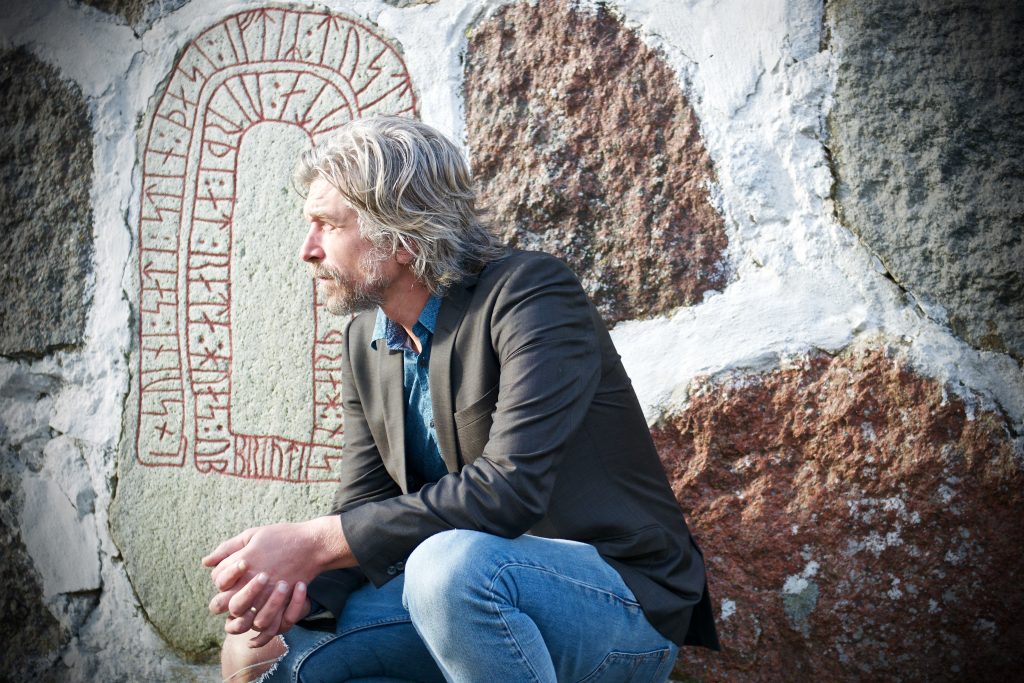
2. Which trait do you struggle with the most?
'I have very low self-esteem. That causes a big inner struggle. In recent years, I have learnt to cope better with certain situations, like giving interviews or performing. But success has not changed my self-esteem; that hole is a bottomless pit. In fact, it is rather getting worse. Recently I was in New York, receiving the Wall Street Journal Innovation Award and attending a dinner with all the movie stars and people from the fashion world. I felt ugly and dirty, and humiliated when I accepted the award. The contrast between who I should be in the outside world and how I feel inside is too great, and I can't get the two to unite.
I don't think this can be healed, nor do I want to. Because it is also what drives me, and in a way makes my life worth living, because I am constantly trying to fill that hole inside me. Every morning I wake up feeling terrible. To my children, I then try to be positive and energetic. When they are off to school, I write. While writing, that awful feeling is not there, because then I am not inside myself, but elsewhere. Writing is an escape. Lately, I have been writing an enormous amount; I work continuously, like a workaholic. Things always become a kind of duty with me, and with that I turn even good things into something bad. Everything in my life, including writing, is linked to a sense of having to.'
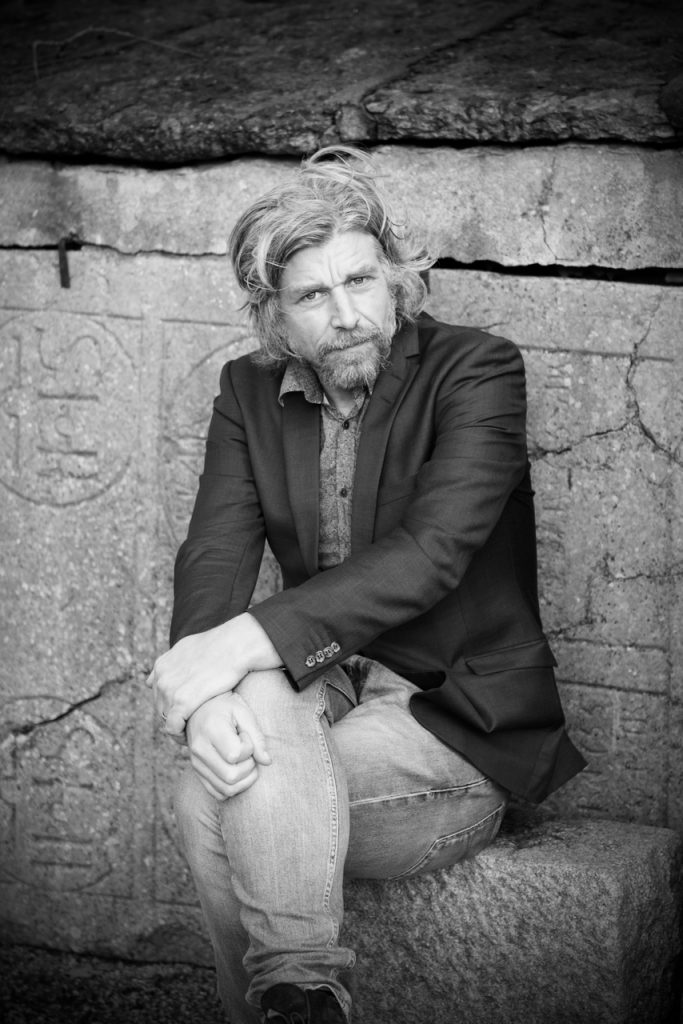
3. What is the biggest lack in your life?
'That's a way of thinking I don't understand - you have what you have, and you'll have to make do with that. Your life is like an ecosystem: you can't take something away or add something without changing everything else too. And I am happy with what I have. But if I have to mention something, it's freedom. That has to do with what I just told you, that everything with me becomes a sacred must. Even good things tie me down because of that. That mechanism is very deep-rooted.
Deathstroke
Whether I have ever felt completely free? Yes, when I moved from Norway to Stockholm and then fell in love with Linda, my ex-wife. There was no conflict at all within me or with the outside world. The best feeling I've ever had. But all this time I didn't write a word. Peace of mind would kill my writing. Why write when you are perfectly happy and the world is open to you? Then there is no need to.'
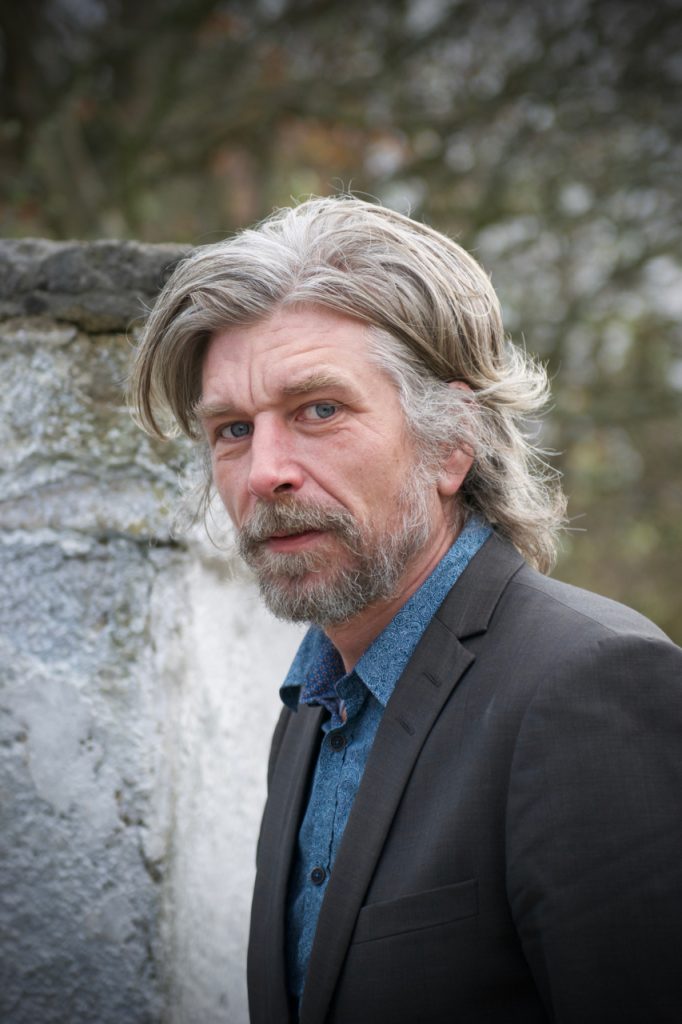
4. What were you afraid to tell your parents?
'With my mother I have a good, open relationship, there is nothing I could not discuss with her. But my father and I didn't talk to each other, we didn't tell each other anything. My struggle is a lot about my father. When he was alive, he was just a person in my life. But after his death, I began to wonder who he really was and why he had become like that. He was a very different man at different stages of his life. He became a father young, when he was in his twenties. By the end of his life, he was full of regrets and unable to function because of his drinking, had more or less become a child. I couldn't talk to that man.
Dead father
By writing My struggle my feelings towards him have changed. In the essays I am currently writing, my father still sometimes appears, but in a different way than before. Now he is just my dead father. It's not threatening anymore. I am much more at peace with him.'
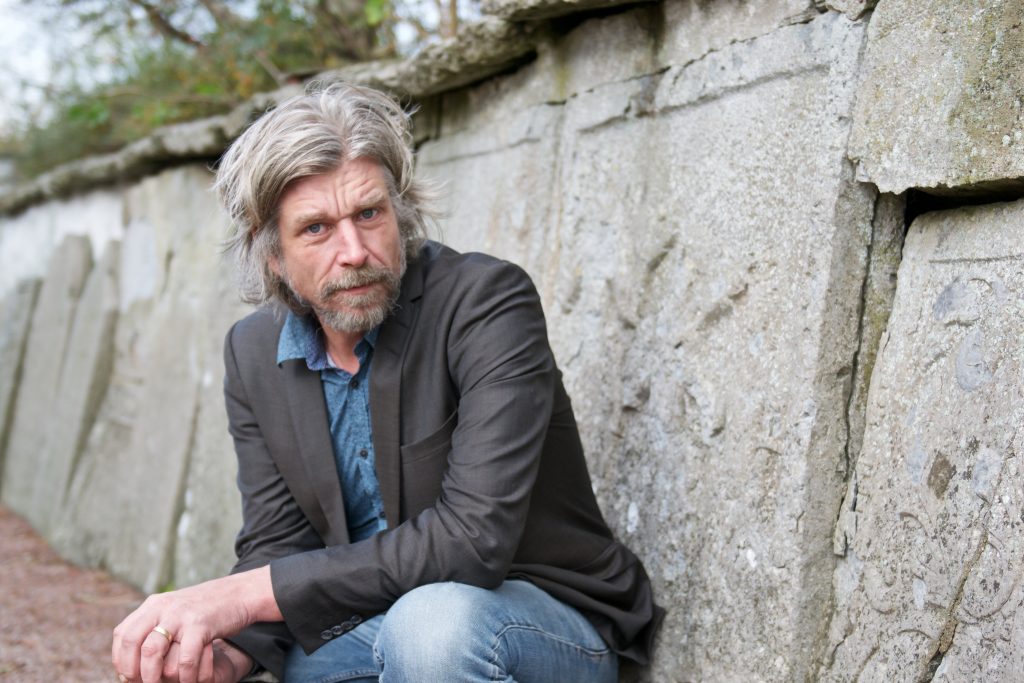
5. What was the best decision of your life?
'The decision to have children. Children make your life richer and meaningful, even if family life is sometimes complicated. Their zest for life reminds you every day what it means to be alive. Basically, I am a good father, I think, even though I make mistakes and sometimes see myself doing things I experienced as a child myself. If you want to impose rules and get angry, you can also saddle your child with shame or even humiliation. It sometimes happens that I humiliate one of my children; I recognise this because I often felt humiliated as a child myself. The pain I feel when I realise what I have done - that is the worst pain I know. I love my children and don't want to do that to them. I cannot behave like my father did. He was a young father, I was not. He himself had a traumatised childhood, was beaten and locked up. In a way, he was destroyed.
Bipolar
I think our first child had the hardest time with us as parents - you learn as you go along. I became more mature. I had a good example in my brother; he is a very good father, much better than me. I just have this chaos inside, way too much feeling, and my wife has it too, because of her bipolar disorder. It would be better if it was all a bit more predictable in our family.'
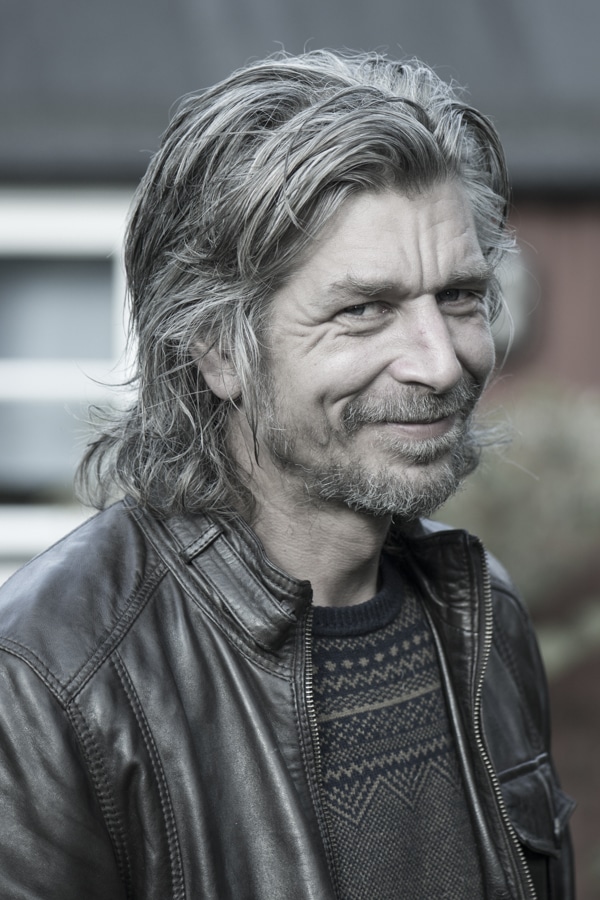
6. What is your biggest childhood sin?
'When I was 17, I had a girlfriend, Cecilia. We were together for a few months, but actually I wanted to end it. I just didn't have the balls to end our relationship properly. One night we went dancing and then came to my house, I was still living with my mother. She went up the stairs to go to my room and I said, "Where are you going? You should sleep in the room next door. It's over." I had absolutely no empathy for her. The next day her parents were coming, they were going to meet my mother for the first time. But so I had just broken up with them a few hours earlier and their daughter was in tears. Her heart had been broken for years at my hands.
I can't believe I did that; I really think that was a sin. The fact that I was drunk made it easier to confront. In fact, I am afraid of conflicts, even now. I avoid them. When it comes to big things, it can take years before I gather enough courage. Smaller issues I keep to myself; I say nothing and swallow it. I bottle up a lot.
Confrontation
Underlying this is a deep fear. I am very, very afraid of someone getting angry with me. I have to learn to deal with that, because I am no longer that 8-year-old boy who is afraid of his father's anger. But I still feel that fear. I want to be liked. And above all, I don't want to disappoint or hurt anyone. But by avoiding confrontation, sometimes you hurt someone worse than if you speak out.'
7. What is the worst thing you have done to another person?
'I neglect people. There are not that many people I really care about. I don't call my friends and I can just completely forget what someone told me. For example, my first wife once told me something that was very important to her and it had taken her a long time to get to that point - and then I completely forgot about it. I find it very bad that I am hardly interested in others, find myself self-centred. I consider that a flaw in my character; other people care much more about others, I think.
Love from others is hard for me to receive. It feels like I don't deserve it, like it is misplaced. Maybe something in me has been cut off. Your first relationships have a big influence on your later relationships, so if something has gone wrong or been difficult in those, chances are that it will also be difficult in your later life. There is definitely a connection there.'
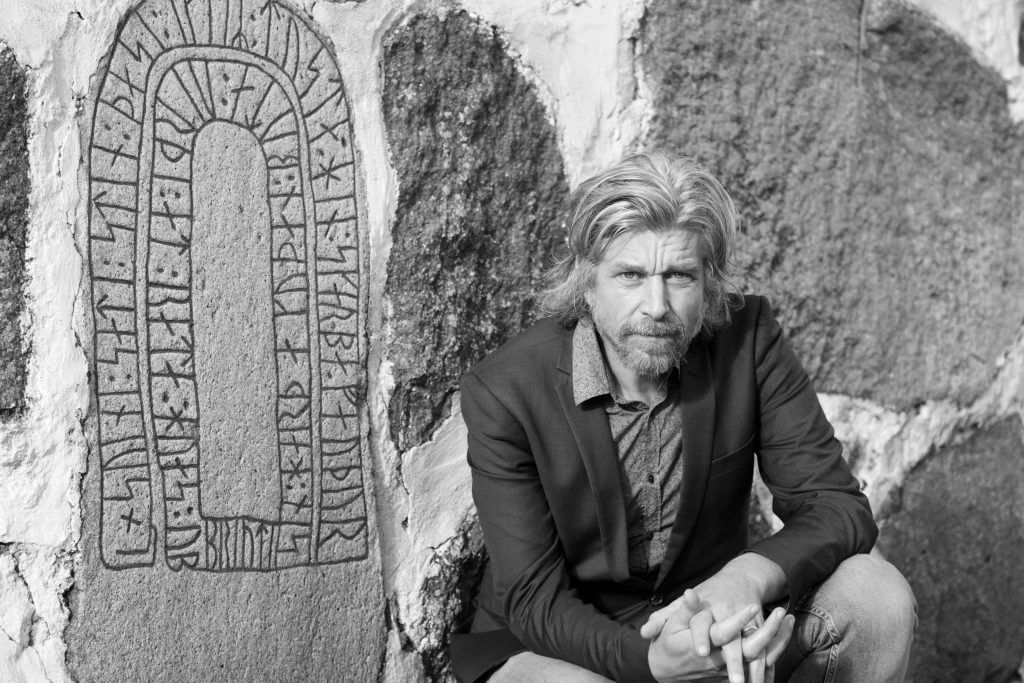
8. What are you most ashamed of?
'I am full of shame. I am ashamed of myself, of my existence. All my books are about shame, though I wasn't aware of it at first. That what I just told you about my former girlfriend, yes, I am deeply ashamed of that. And rightly so, because I shouldn't have done that. I see shame as a good thing; it's a social mechanism that keeps you in place in relation to others. If you do something wrong, you feel it inside and then don't do it again.
But too much shame can also paralyse you. In companies, I usually don't say anything for that reason. Only when I know people can I talk without shame. That is also why I write: then I am in a shame-free zone. Only when I stop, do I feel ashamed of what I have written. Right now, I'm working on something I feel no shame about, so that's probably a bad sign. Then it usually lacks quality, I haven't given enough of myself. It is precisely when it feels stupid and ridiculous that you move into unprotected, unsafe territory. And that's exactly where writing should take you.'
Knausgård made his debut in 1998. After his second novel Angels fall slowly writing fell hard on him. After his father drank himself to death, Knausgård began writing like a man possessed, culminating in Father and five more volumes of the autobiographical novel series My struggle (Min Kamp, 2008-2011). The books were translated worldwide and made Knausgård famous. They also provoked much discussion, partly because he writes unabashedly about emancipation and Hitler's Mein Kampf - reason why Knausgård was called a Nazi. Karl Ove Knausgård lives in a hamlet in southern Sweden. With his ex-wife, writer Linda Boström, he has four children. His work is published by De Geus.
